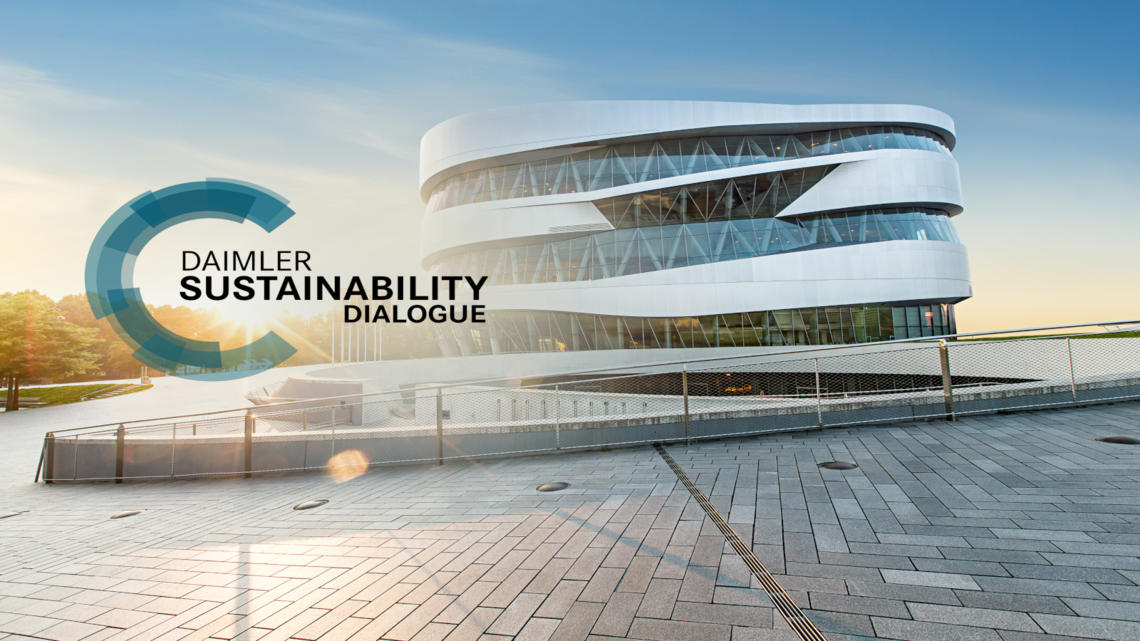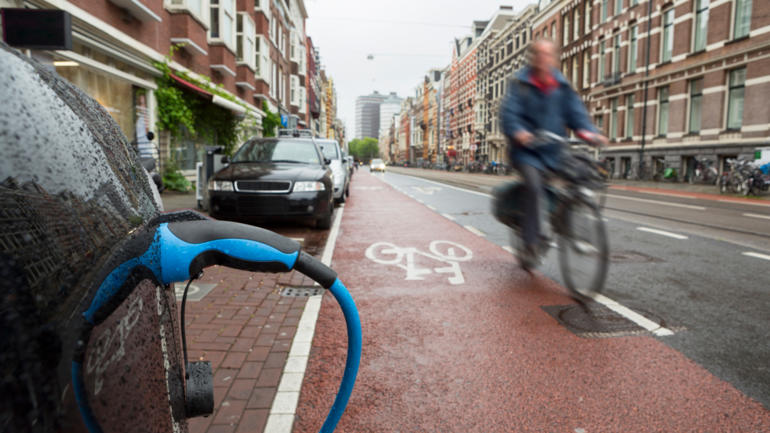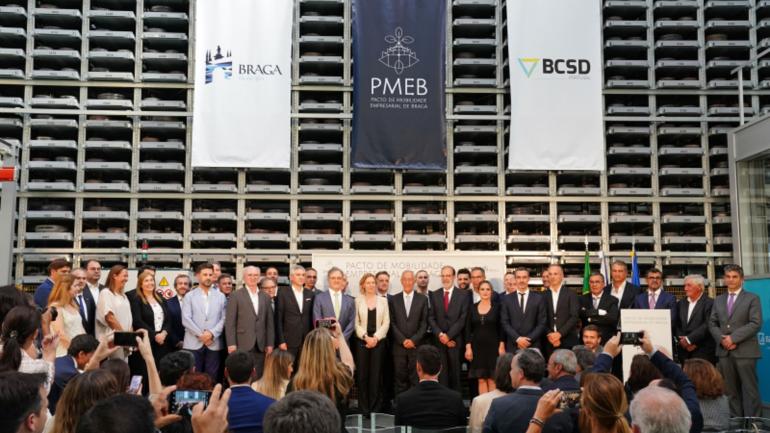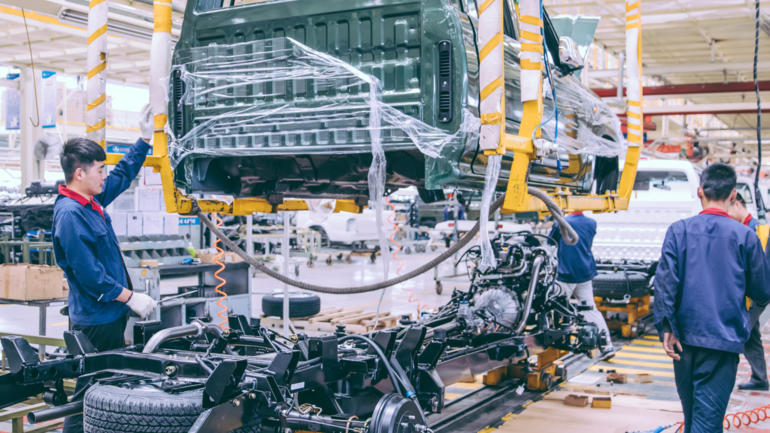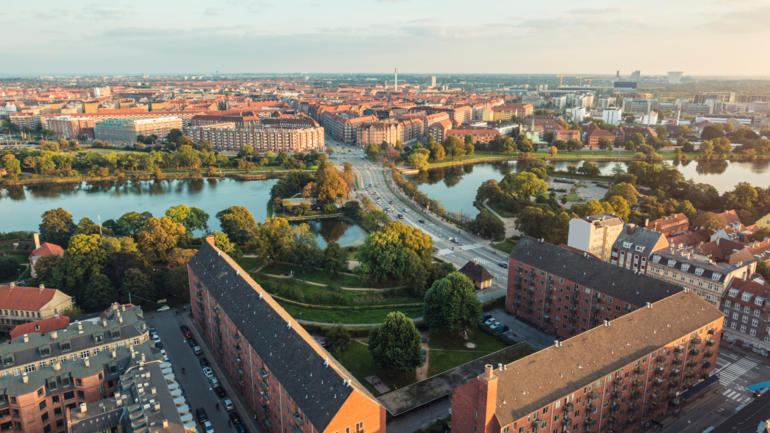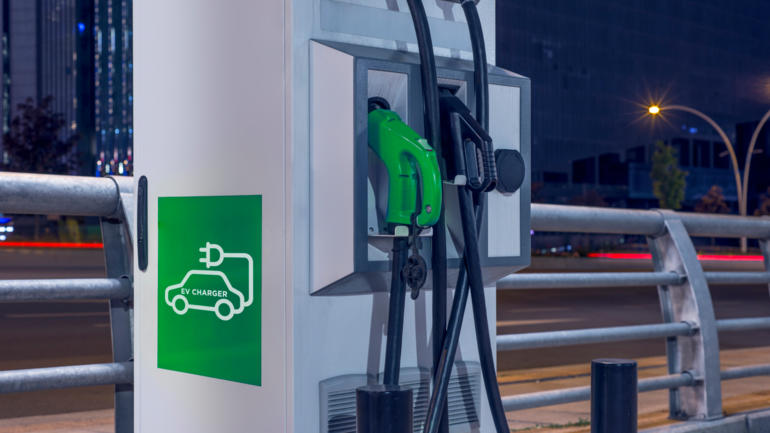The 13th Daimler Sustainability Dialogue has brought together more than 200 representatives from business, politics and society – for the first time digitally, but by no means less significantly, at a time when climate change, the global pandemic and critical debates about inequality are fueling worldwide discussions. At this challenging moment, the automotive industry has to reinvent itself to pave the way for emission-free mobility. The watchword now is "Build back or forward better". The question of how this can be achieved and much more was discussed intensively at the Dialogue.
Since 2008, the Daimler Sustainability Dialogue has been an annual platform for discussing the future of mobility, attended by sustainability experts from various sectors and representatives of Daimler, including several members of the Daimler Board of Management. Among the speakers were the Director of the Potsdam Institute for Climate Impact Research and Professor in Earth System Science at the University of Potsdam Johan Rockström, the Parliamentary Secretary of State Rita Schwarzelühr-Sutter or Claudia Nemat, member of the Deutsche Telekom AG Board of Management for Technology and Innovation. This year too, the participants discussed current and future sustainability topics in workshops, assessed progress, shortcomings and risks and defined areas where action is required.
Senior Manager of Corporate Social Responsibility at Daimler AG, Dr. Wolfram Heger, has attended the Sustainability Dialogue for many years, and he is convinced that this well-proven event is of great benefit to the enterprise: "As a global company we need to be in a dialogue with our entire environment. This is firstly very important so that we know what the company can expect in the future, and what is expected of it in turn. And secondly, the Sustainability Dialogue is an event where we can learn from experts."
This year, WBCSD’s Mobility Director, Thomas Deloison, also attended the event. “To guarantee a fast transition to sustainable urban mobility, we need to center collaborations across sectors around the creation of shared value: for people, the planet and the economy. The Daimler Sustainability Dialogue brings stakeholders together to that purpose” Thomas Deloison said.
Held under Chatham House Rule, the event allows all participants to speak openly about issues and challenges, discuss possible solutions and practical avenues. In small groups, experts from Daimler work together with NGOs, city representatives and business associations to examine specific challenges relating to human rights, data responsibility or environmental aspects among others. The agreed objectives are monitored during the year, and the resulting progress is presented at the Sustainability Dialogue the following year.
Wolfram Heger is pleased that thanks to the commitment to achieve set goals, many experts are happy to take part repeatedly. The Human Rights working group which he heads was able to have constructive online discussions. One of the agenda items was the Human Rights Respect System – Daimler's strategic approach to the safeguarding of human rights is applied both in its supply chains as well as in companies in which Daimler is the majority shareholder – and consequently the associated operational challenges. The current debate about possible supply chain legislation was also part of the open discussion.
Such an open approach to discussion is by no means a matter of course for Wolfram Heger, who often thinks back to the early years: "Some felt that there was a great risk of difficult questions to which they might not have answers. Nowadays we benefit from the trust that the Dialogue has created among attendants. All the participants know that differences of opinion are ok. Whereas there was sometimes an atmosphere of conflict in the earlier years, we now see a great preparedness to understand the viewpoint of other parties." Accordingly, the Daimler Sustainability Dialogue also has a legitimizing function for Wolfram Heger. Whether an NGO, CEO or analyst – it is possible to learn from every guest how one might do things better in one's own area of activity.
In the Environment working group, the main topic for discussion this year was how the automobile sector can accelerate the battle against climate change. With its Ambition 2039, Daimler has already defined specific goals for its contribution to climate protection: By 2039, the new vehicle fleet of Mercedes-Benz Cars aims to be CO₂-neutral and have no relevant effects on air quality in inner-city areas. The company aims to have more than 50 percent of its passenger car unit sales electrified by 2030. Furthermore, the Daimler-owned Mercedes-Benz car and van plants around the world also aim to achieve CO₂-neutral production from 2022.
Another focus of this year's event was on the management of sustainability topics in times of COVID-19. Daimler's position is clear: the company is standing by its objectives despite the pandemic, and systematically expanding its activities with a view to sustainability. Other topics discussed during the Dialogue included livable cities, traffic safety, data responsibility, integrity and human resources, partnerships and social responsibility as important components of sustainable mobility.
Read more about the Daimler Sustainability Dialogue here.

